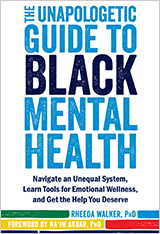



Important Reminders
New Virtual Series

Women's Health Awareness is excited to bring you Zoom webinars. They will be held on the second Thursday of each month, from 6:30 - 7:45 p.m.

Hot Health Topic
Do Not Delay Medical Care During COVID-19
The Life You Save Could Be Your Own
The COVID-19 pandemic has negatively impacted the health care systems in the U.S. and abroad. Physicians have noticed a decline in the number of patients, both adults and children, who are visiting emergency rooms (ERs) and primary care physicians for typical problems including appendicitis, bowel obstructions, gall bladder issues, and for more critical conditions such as heart attacks, strokes, reproductive issues, and diabetes complications. This delay in medical care could be due to several causes.
- Fear of contracting COVID‐19 was the first and foremost concern for patients.
- The gap in disaster preparedness, leaving vulnerable populations at even greater risk for poor health outcomes, including not only clinical outcomes, but factors such as mental health, pain, and quality of life.
- Hospitals do not have resources to treat both patients with COVID-19 and other chronic conditions.
- Populations are being discouraged from seeking medical care and accessing hospitals even when emergency medical attention is needed.
Physicians and other health experts are noticing severe complications of chronic diseases as a result of delaying timely care. For example, complications from late presentation of myocardial infarction (heart attack) had become a rarity, and during the pandemic is on the rise. Delays of cancer care can cause greater risk for poor cancer outcomes, including not only clinical outcomes, but factors such as mental health, pain, and quality of life. A recent study estimates 33,890 excess deaths among cancer survivors over the age of 40, as a result of delayed care and access to care during COVID-191. Delays may cause a complicated clinical course, such as more intensive treatment, surgeries, and recovery, thereby increasing morbidity and mortality which may have worse effects than COVID-19 itself.
Don’t Delay Medical Care
Do not ignore life-threatening or harmful symptoms that need to be addressed immediately. These may include difficulty breathing, acute injury, chest pain, severe and/or persistent headache, signs of a stroke, and symptoms of low and/or high blood sugar. Call 911 for emergency care or go to the nearest emergency room or urgent care center.
If your symptoms do not require a trip to the ER, then call your primary health care provider or schedule a telehealth appointment to be seen by your primary care physician or physician on call. Most importantly, before delaying any treatment it is important to contact the physician to discuss any risk factors and better determine if the condition needs to be addressed sooner rather than later.
Don’t Delay Annual Health Exams
Current times have shown us that a lot can change in a year. Your medical condition is no exception. Annual physical exams are the perfect time to report changes to your medications, your physical and mental health, and your family history. Physical exams focus on your overall wellness and the preventive care needed to stay healthy.
Regardless of your age or stage of life, annual health exams are essential for chronic disease prevention. It is one of the best ways to identify and treat acute health issues before they progress to chronic illness and disease. You can also track your progress toward your health goals during these visits. Your wellness check may include blood tests and other screenings such as blood pressure, cholesterol, blood glucose, and osteoporosis. Even if you are not experiencing symptoms, these tests can identify underlying conditions such as heart disease and diabetes.

This can enable your doctor to make recommendations for follow-up testing or other changes such as dietary changes, increased exercise, and/or changes in lifestyle factors. Annual exams are also a time to review your vaccination history and risk factors, and make recommendations about other immunizations such as flu, pneumonia, or shingles vaccinations. It is important for children and adults to keep their vaccines up to date to prevent dangerous diseases.
Your annual health exam is the optimal time for your doctor to evaluate cancer-related risk factors and make cancer screening recommendations (i.e., mammogram, cervical, and colon cancer screenings). It is important to maintain routine cancer screenings to increase your chances of detecting cancer in the earliest stages.
Tips for Visiting Your Doctor’s Office During COVID-19
- You may find that medical office policies are stricter in the time of COVID-19. Before going to your medical visit, empower yourself with information about any changes to your doctor’s office visitor policies and procedures. For example, many now have contactless check-ins for appointments, which decreases time spent in the waiting room.
- Likewise, hospitals have tightened regulations for visiting caregivers. Be mindful of these potential changes before visiting the hospital.
- To prepare for an in-person appointment, remember that physical distancing practices are still in place: Masks should be worn at all times, and hand sanitizing and hand washing are the recommended protective measures.
Contactless Visits With Your Doctor – Telemedicine
As the COVID-19 pandemic evolves, telemedicine and virtual care have become important resources allowing you to limit your exposure to COVID-19. Telehealth visits are most appropriate for individuals needing routine care for chronic or general health conditions. Telemedicine can also be used for behavioral health care visits. Many insurance providers cover telehealth visits just like other medically necessary office visits and in many cases it’s less expensive. Be sure to check with your primary care provider to see if telehealth visits are available. You can also contact your health insurer concerning telehealth visits; they may provide 24-hour Teladoc services. Telemedicine visits are as simple as using your phone, smartphone or laptop along with a shared link to enable video, or other electronic devices. Teladoc appointments can be as confidential as an in-person doctor’s office visit.


Environmental Health
Do Not Snooze on the Importance of Sleep
Sleep is vital to good health and well-being. As you sleep, your body works to support healthy brain function and maintain physical health. A lack of sleep can be harmful over time. The National Heart, Lung, and Blood Institute reports that about 50 to 70 million Americans have sleep disorders, and 1 in 3 adults are not getting the recommended amount of uninterrupted sleep they need to protect their health. Not only does sleep deficiency raise the risk for some chronic health problems, it also affects how well you think, react, work, learn, and get along with others. Ongoing sleep deficiency is linked to increased risk of heart disease (i.e., high blood pressure and stroke) diabetes, kidney disease, and obesity. Recent studies have shed more light to the importance of undisrupted sleep.
How Exercise Impacts Sleep Quality
Exercise is an important part of a healthy lifestyle. Working out regularly helps control your weight, fight heart disease, and even boost your mood. Also, exercise has been linked to improving your sleep quality at night and promoting greater alertness during the day. To maximize your sleep results, it is important to understand the exercise sleep connection, including how much to exercise and when to exercise.
Exercising in the morning or afternoon raises your body temperature a few degrees. When your body temperature drops back to its normal range in the evening, this can trigger feelings of drowsiness and helps you drop off to sleep. Moreover, exercising outdoors exposes you to natural light, which is an important element that helps the body establish a good sleep-wake cycle.
Surprisingly, you do not need to spend half the day in the gym to see an impact on your sleep. Completing about 30 minutes of moderate to vigorous exercise five times a week will not only help improve your sleep quality, but also allows you to meet the national guidelines for physical activity. Even if you cannot fit in 30 minutes of activity, walking, swimming, or biking for just 10 minutes can improve your sleep. Take a brisk walk around the neighborhood or a quick bike ride with the children and reward yourself with a good solid night’s sleep.
Impact of Light on Sleeping Patterns and Health
Scientists at NIEHS have found an association between any exposure to artificial light at night while sleeping and weight gain in women. The Sister Study, a cohort study examining risk factors for breast cancer and other diseases in women, used questionnaire data from 43,722 participants aged 35-74 years old.
The women had no history of cancer or cardiovascular disease, did not work shift-work, were not daytime sleepers, and were not pregnant when the study began. Women were asked if they slept with no light, a small nightlight, light outside of the room, or a light or television on in the room. Results indicated that women who slept with a light or television on were 17% more likely to have gained five kilograms (approximately 11 pounds), or more over follow-up five years later. Weight gain was not associated with using a small nightlight. Light coming from outside the room showed a more modest association. The research results suggest women can reduce chances of becoming obese. So, turn off the lights and your television at bedtime to reduce your chances of obesity.

Lack of Sleep May Increase Your Risk for Diabetes and Heart Disease
A recent study found higher blood sugar (or blood glucose) levels in African Americans with disrupted sleep. About 800 African American men and women who had home sleep apnea testing participated in the study. Study participants wore a device that measured their sleep for a week and they kept a sleep diary. How long people slept, how often they woke up during the night, and changes in sleep patterns were examined. These findings were compared with blood glucose levels taken in a clinic. Higher glucose levels were found in those with either sleep apnea or disrupted sleep patterns. Levels were 14% higher in people with the most severe sleep apnea.
A five-year heart study found that older adults with irregular sleep patterns are nearly twice as likely to develop cardiovascular disease (CVD) as those with more regular sleep patterns. The study involved 1,992 men and women who were part of the National Heart, Lung, and Blood Institute-funded Multi-Ethnic Study of Atherosclerosis. The participants were between the ages of 45-84, lived in communities across the United States, and did not have CVD at the start of the study. CVD events, including heart attack and stroke, or death from CVD-related causes, were observed in 111 participants. The study suggested that an irregular sleep pattern may be a risk factor for CVD, and that maintaining regular sleep patterns could help prevent heart disease just as physical activity, a healthy diet, and other lifestyle measures6. Consistent with previous studies, this study found that racial/ethnic minority populations, particularly African Americans, displayed a stronger association between irregular sleep and CVD than did whites. While researchers are still unclear as to the exact biological mechanisms behind the sleep irregularity and CVD link, they speculate that multiple factors, including harmful disturbances in the body’s circadian rhythm, may play an important part.
Eight Tips for Ensuring Good, Quality Uninterrupted Sleep
- Go to bed and wake up at the same time every day. For children, have a set bedtime and a bedtime routine. Don’t use the child’s bedroom for timeouts or punishment.
- Try to keep the same sleep schedule on weeknights and weekends. Limit the difference to no more than about an hour. Staying up late and sleeping in late on weekends can disrupt your body clock’s sleep-wake rhythm.
- Use the hour before bed for quiet time. Avoid strenuous exercise and bright artificial light, such as from a TV or computer screen. The light may signal the brain that it’s time to be awake.
- Avoid heavy and/or large meals within a couple hours of bedtime. (Having a light snack is okay.) Also, avoid alcoholic drinks before bed.
- Avoid nicotine (for example, cigarettes) and caffeine (including caffeinated soda, coffee, tea, and chocolate). Nicotine and caffeine are stimulants, and both substances can interfere with sleep. The effects of caffeine can last as long as eight hours. So, a cup of coffee in the late afternoon can make it hard for you to fall asleep at night.
- Spend time outside every day (when possible) and be physically active.
- Keep your bedroom quiet, cool, and dark (a dim night light is fine, if needed).
- Take a hot bath or use relaxation techniques before bed.
Do You Think You Have a Sleep Problem?
If so, talk to your doctor. Be prepared to answer questions about work and exercise routines, and caffeine, tobacco, alcohol, or any medicine use. Also consider keeping a sleep diary for a couple of weeks. The diary should indicate when you prepare for sleep, wake up, and take naps, and how alert or rested you feel throughout the day. Share the information from your sleep diary with your doctor.

Nutrition Corner
Ginger Fried Rice
Servings: 2 • Total Time: 25 minutes
This recipe provides plenty of vegetables, a grain, and protein, which provides three out of the five food groups. Ginger, garlic, and onions are known to assist in boosting the immune system. This rice bowl is very colorful, and you can use the vegetables you currently have in the fridge. This recipe is a flexible dish, limited only by what is in the fridge and your imagination.
Recipe provided by Patrice Carr from the Durham County Department of Public Health Nutrition Division.
Ingredients
- 4 teaspoons oil (canola or vegetable)
- 2 eggs, lightly beaten
- 2 tablespoons chopped green onions
- 1/2 cup chopped sweet, red peppers
- 1 cup frozen stir-fry vegetables
- 2 garlic cloves, minced
- 2 cups brown rice cooked (instant or regular)
- 1/2 cup shrimp, chicken, or tofu
- 2-4 tablespoons low-sodium soy sauce
- 1 teaspoon ground ginger
- 2 tablespoons shredded carrots
- In a large skillet, heat 1 teaspoon oil over medium-high heat.
- Pour the lightly beaten eggs into the skillet. Cook without stirring until eggs are completely cooked (2–3 minutes). Move the eggs to a plate and cut into strips. Set aside.
- Return the skillet to the burner and add the oil. Heat to medium high and sauté peppers, onion, and garlic until tender. Cook, stirring occasionally, until onions are softened.
- Stir in the rice, vegetables, ginger, shrimp/chicken/tofu, and soy sauce. Heat through, stirring occasionally.
- Add the egg strips and heat through. Garnish with carrots.

The Reading Nook
Fall 2020 Featured Book Selection
Reading provides numerous health benefits, including learning new skills to improve one's lifestyle. Research published in Neurology suggests that reading stimulates your brain and may help slow the progression of age-related memory conditions such as Alzheimer's Disease and dementia. Reading engages the brain and may preserve brain health and lower cognitive decline in older age. Whether consuming books for self-improvement, knowledge, cognitive improvement, or creativity, reading is good for your health!
 (Photo courtesy of Rheeda Walker)
(Photo courtesy of Rheeda Walker)
The Unapologetic Guide to Black Mental Health
Author: Rheeda Walker, Ph.D.
Summary: Rheeda Walker, Ph.D., is a psychologist and African American mental health expert. Her book, “The Unapologetic Guide to Black Mental Health” provides important information on the mental health crisis in the Black community. She also offers guidance on how best to combat stigma and spot potential mental illness. She also presents best practices for emotional wellness and how to get the best care in a racially biased mental health system.

Recenter, Refocus, Recharge
Five in Five: Supercharge Your Five Senses in Five Weeks
Supercharging your five senses of touch, sight, smell, sound, and taste can transform your everyday life and improve your overall health. Over the next five weeks, keep your senses sharp and mind refreshed by exploring these helpful suggestions.
Week One, Explore the Sense of Touch: Pay Attention to How Things Feel
Awareness of what you touch helps awaken the brain and stimulates your sensory recognition pattern. Physical touch is very important. Experts say that when we are deprived of physical touch our health can decline.
A new psychological concept recognizing the biological need for human touch is called skin hunger. Skin hunger may present itself like depression. Symptoms can include anxiety, sleep disturbance, low energy, change in appetite, constipation, lack of libido, and dryness of skin throughout the body, most noticeably on the shins, hands, or elbows.
Try these tips to ease skin hunger and increase your brain stimulation for the sense of touch:
- Dry brushing before showering to help stimulate the lymphatic flow, circulation, energy, cellulite, and dull skin. Start at your toes and work up to your fingers.
- Hug and love your pets. It’s been said that people who have pets live longer.
- Walk with your bare feet, paying attention to each step that you take, each surface that your feet touch, and the sensation of the carpet, grass, or pebbles between your toes.
Week Two, Explore the Sense of Sight: Exercise Your Eyes
To maintain optimal vision, practice these eye exercises daily:
- Blink your eyes. When working in front of a computer, stop and blink your eyes often to create tears and moisture.
- Massage your temples. Massage temples in small circles using thumb knuckles, circle 20 times in one direction, circle 20 times in the opposite direction. Repeat action above mid-point of eyebrows at forehead. Repeat below eyes on both sides of bridge of nose.
- Relax your eyes. Lay your head back, close your eyes, and relax for three minutes.
Week Three, Explore the Sense of Smell: Awaken Your Senses With Aromatherapy

Aromatherapy awakens your sense of smell and stimulates the limbic system of your brain. There is evidence that suggests aromatherapy activates our smell receptors. Smell receptors located in the nose send messages through the nervous system to the brain, which identifies the smell. Natural aromas can be found in lemons, oranges, chamomile, lavender, cedarwood, and peppermint.
Week Four, Explore the Sense of Sound: Listen to Music
Listening to music is important in increasing overall health. The brain sends signals to every part of our body in response to music. Science indicates there are many positive health benefits of listening to music, such as improving sleep, increasing concentration, elevating mood, reducing stress, improving functions of the heart, relieving symptoms of depression, and increasing endurance.

Week Five, Explore the Sense of Taste: Add Variety to Your Diet
Adding variety to your diet helps to stimulate your taste buds. Try new recipes, spices, and foods. Eat whole foods such as fresh fruits, vegetables, lean proteins, whole grains, and healthy fats. Stay away from processed foods, which contain a lot of sugar, salt, chemicals, and artificial ingredients and can hijack our taste buds, causing food cravings that negatively impact our health. Eating whole foods can increase our energy, improve focus, and even improve sleep. Feeling great and seeing improved health results will motivate you to make healthy food choices for a healthier life.

Multimedia Showcase
Featured Podcast
Featured Podcast
Interviewee: Helmut Zarbl, Ph.D.
Circadian Rhythm and Your Health, Released on May 17, 2018
Did you know that many of the processes in your body operate on a 24-hour cycle? This cycle, called the circadian rhythm, controls important functions in the body, such as hormone production and sleep patterns. The circadian rhythm is largely controlled by the normal pattern of light and darkness we experience in a day. But our circadian rhythm – and the processes it controls – can become disrupted if we are exposed to artificial light during nighttime hours. Disruption of the circadian rhythm has been linked to a range of health problems, including obesity, mood disorders, and cancer.
In this podcast, Helmut Zarbl, Ph.D., discusses his research on circadian rhythms, and highlights why people who work night shifts and are frequently exposed to nighttime light have increased rates of certain types of cancer. We’ll also learn tips for maintaining a normal, healthy circadian rhythm and getting a good night’s sleep.

Sister to Sister: Share Your Story
We would love to hear your story! Sharing a story about your personal WHA experiences can provide encouragement and support to others. Make a difference in the life of another by sharing your poetry, song lyrics, inspirational quotes, drawings, or photos. Email your story to WHA or call 919-541-3852 if you have questions. Your story may be featured in a future newsletter!

Let's Stay in Touch







 ((Photo courtesy of Anatoliy Karlyuk / Shutterstock.com))
((Photo courtesy of Anatoliy Karlyuk / Shutterstock.com))


 (Photo courtesy of WAYHOME studio / Shutterstock.com)
(Photo courtesy of WAYHOME studio / Shutterstock.com)
